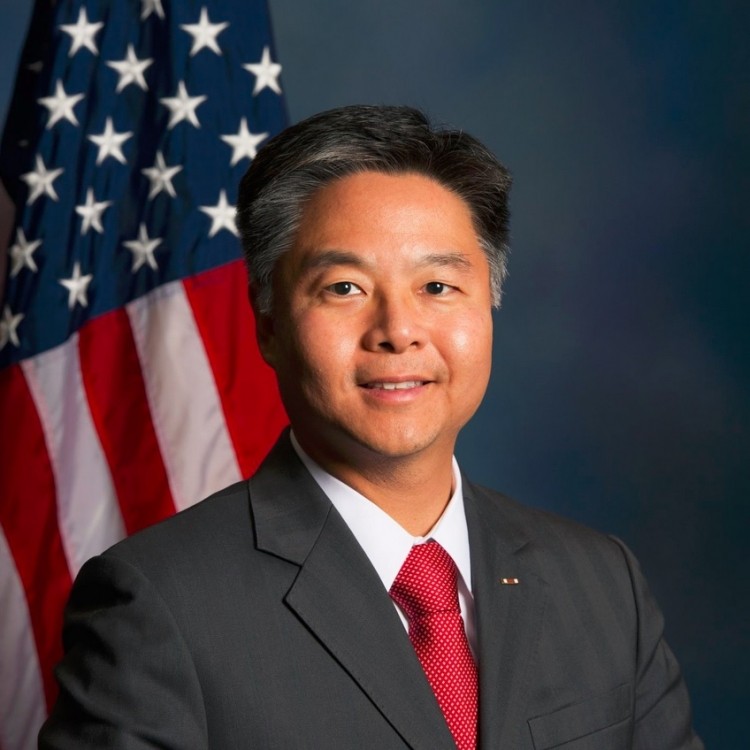Industry finds new supporter in meeting with Rep. Ted Lieu, D-CA

The meeting included Lieu and a staffer as well as Jarrow Rogovin, president and board chairman of Jarrow Formulas, Mark Blumenthal of the American Botanical Council, Michael McGuffin of the American Herbal Products Association as well as a number of high level Jarrow employees and other industry stakeholders. The meeting took place Sunday in conjunction with the Natural Products Expo West trade show in Anaheim, CA.
Lieu assumes the seat that was held for many years by Henry Waxman, long known as a critic of the dietary supplement industry. Waxman was the prime opponent who needed to be placated before the Dietary Supplement Health and Education Act (DSHEA) could be passed in 1994.
List of concerns
In the meeting the industry representatives laid out a number of concerns, prime among them the recent actions by New York Attorney General Eric Schneiderman and the fallout this has caused. The group also raised concerns about the actions and policies of the Food and Drug Administration. These included the agency’s indifferent commitment toward enforcement of the regulations already on the books and how this makes it easier for bad actors to introduce adulterated products into the marketplace. The group also voiced concern about the long-delayed New Dietary Ingredients draft guidance and about the recent revolving door of upper management at FDA that makes it difficult to make progress on working out the differences industry has with the agency.
Lieu was highly engaged with the group’s presentation and listed for more than an hour to the litany of the industry’s concerns. Lieu, who holds a law degree from Georgetown University and is an Air Force Reserve lieutenant colonel, said his interest in herbal products was sparked by his childhood in Taiwan, where his parents frequently administered Traditional Chinese Medicine remedies.
The group emphasized for Lieu that new regulations are not needed, rather what is called for is a more robust enforcement commitment on the part of the agency. The current situation allows fly-by-night companies free rein to compete with more responsible firms, the stakeholders said.
“FDA without question has the tools to go after the bad actors in industry,” said Scott Polisky, an attorney who has consulted with Jarrow Formulas for years.
“We don’t understand what the FDA’s algorithms are for enforcement,” Rogovin said. “It is expensive to create a good product, and we have to compete with others who cut corners.”
Low barriers to entry can counterintuitively restrict growth in the industry, said Mark Noble, a vice president of US Bank, who was also in attendance.
“What can happen if some of the bad actors aren’t policed appropriately is that can have a chilling effect on financing the good companies. Leveling the playing field would go a long way toward making it possible for banks to provide capital to the industry,” he said.
The group was particularly concerned about the image of overall shoddy quality that the NYAG affair has raised and how quickly the mainstream media and other influencers seem to have bought in to this story.
“I've been in the business for 40 years,” Blumenthal told the congressman. “It’s hard to say if adulteration is worse now that it was because we don’t have a baseline from twenty or more years ago. Adulteration could come from accidental mixing of material; but we know of cases of adulteration that could not have happened unless someone was intentionally trying to pass something off as something that it wasn’t.”
Adequate regulations
Along with the image of poor quality control has come the call for more regulation of the industry. The group forcefully put across the message that existing regulations ought to be enough and that when industry has seen a gap in regulation, it has moved to close it as in the case of adverse event reporting that was outlined by McGuffin. He said FDA was originally unwilling to add a provision calling for the gathering and reporting by dietary supplement companies of adverse events. So the industry worked with lawmakers to get a law passed extending this responsibility to the industry in a manner very similar to that of OTC drugs.
“When we see a need for more regulations, we ask for them,” McGuffin told the congressman.
The group also made Lieu aware of the issues surrounding the New Dietary Ingredients draft guidance which was first proposed in 2010 and now languishes in something of a limbo after strident industry criticism. McGuffin gave voice to the feeling shared around the room that the guidance overstepped what was in DSHEA and made Lieu aware of the way in which the uncertainty in what the guidance will say when reissued (and the matter of what it ought to say) is making it almost impossible for responsible companies to bring new ingredients to market in a fully compliant way.
Baby steps
Lieu asked that the conversation be boiled down to a series of bullet points, action items on which he said he was willing to work with industry. There are several steps that could be taken to nudge FDA in the direction the industry would like to see it go short of calling for a hearing, he said.
“Let’s think about what a letter look like, what would a conversation or a meeting look like.
"There are steps you can take to resolve things before calling a hearing. A meeting or a phone call, those are things I can control. A hearing? There are all these other members of Congress there and they can ask anything they want,” he said.
“I have been in the legislature for more than 10 years (Lieu previously served in the California state legislature) and it’s clear to me that most industries want a way to weed out bad actors. They want a way to do that without harming the good actors. So give me ideas,” he added.








